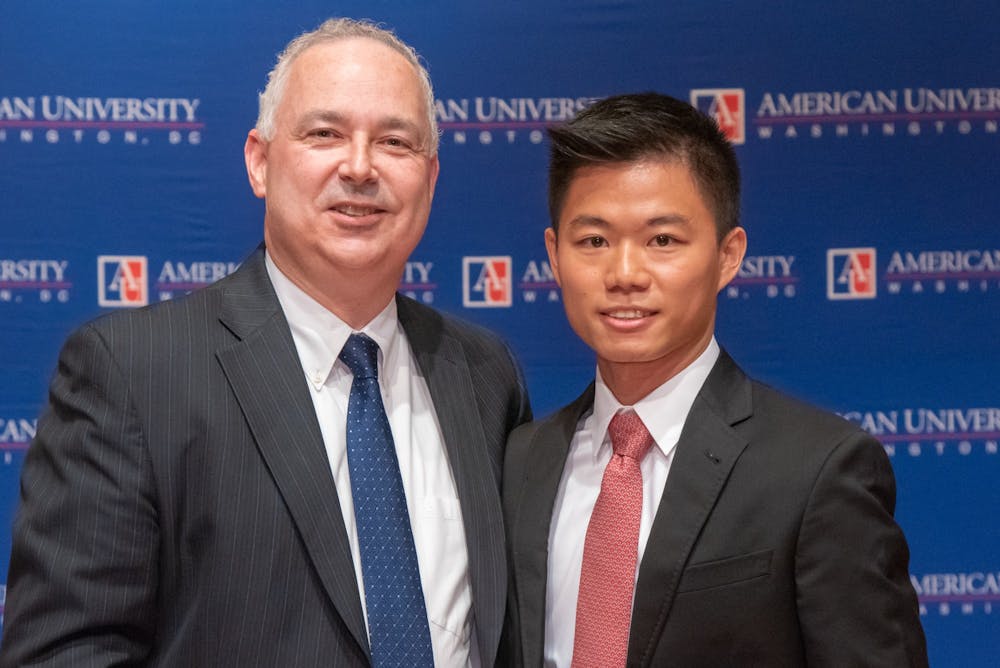Dear AU Community,
I write with a heavy heart to bring to your attention the anger and frustration of the people of Myanmar (Burma), including American University students and alumni, as our country’s democracy was egregiously desecrated over the past few weeks.
Burma fell under military rule in 1962, marking the birth of an oppressive regime that would go on to last another five decades. During that era, systemic abuse and discrimination violently manifested in the form of widespread human rights violations; the use of child labor, human trafficking and restriction of free speech were only a few of the injustices endured by the people in this country. Given that the first civilian president in half a century since the ‘60s coup d’état was elected in 2011, the country only began transitioning into a democracy recently.
Burma’s fight for democracy and human rights is not alien to the AU community. In fact, AU was one of the first global universities to recognize the cause. In the late 1990s, AU students boycotted PepsiCo as part of an effort to halt U.S. economic involvement with the Southeast Asian country’s military government. In 1997, the University conferred upon the pro-democracy leader Aung San Suu Kyi an honorary degree. A year later, four AU students (U.S. nationals) were detained by the junta for handing out pamphlets with the numbers “8888” — representing the date, Aug. 8, 1988, when troops opened fire on student protesters in Burma, The Washington Post reported. The leaflets also read: “Don’t Forget — Don’t Give up.”
On Feb. 1, 2021, the people of Burma awoke to find that the military had staged a coup d’état and that government officials and civil society activists, including State Counsellor Aung San Suu Kyi and President Win Myint, were detained. Aung San Suu Kyi’s party, the National League for Democracy, won a landslide victory in the general election this past November. The army has tried to justify their actions by accusing the NLD of electoral fraud, a claim which the Carter Center and other independent observers have refuted.
At the moment, peaceful protests against the military continue in Burma and in other parts of the world. In response, protesters in Burma have been subjected to an excessive display of force, with many being met by a barrage of water cannons, rubber bullets and even live ammunition. Internet access has also been largely cut off. The military has also begun arresting those who join or support the nationwide civil disobedience movement in which bankers, healthcare workers and other civil servants adopt a “no recognition, no participation” stance and refuse to work for the junta.
This unstable political situation has placed a great burden on the lives of Burmese Eagles and the Burmese population at large. During the day, we march on the streets, and at night, we work to ensure nobody in our neighborhood is unlawfully taken away by the police without a warrant. Furthermore, we, the AU students and alumni from Burma, have placed ourselves at great risk by taking on interviews with international media outlets to share our stories. The Eagles’ bravery has played a great part in promoting global awareness of the chaos unfolding in the nation and can potentially be put under military scrutiny.
Over the decades, so many lives have been sacrificed in our long struggle for democracy. Therefore, as former president and resurrector of the International Student Association, former vice president of the Asian American Student Union, former senior adviser of the Southeast Asian Student Network and former member of the International Student Leadership Team, I urge the University to seriously consider the following actions in support of our Burmese students and alumni:
- AU must make a public statement regarding the current tensions in Burma and stand in solidarity with Burmese Eagles.
- The AU community should amplify the voices of the Burmese population through student-led movements and call on the international community to do everything they can to restore democracy in Burma.
- I urge the AU community to stand in solidarity with the civil disobedience movement and consider donating to or organizing their own fundraisers to provide financial relief to those partaking in the cause. Participants are placing their careers and livelihoods on the line to stand up against injustice, and any monetary aid will provide significant support for them in such turbulent times.
Finally, I encourage all members of the AU community to stay informed and updated with the events in Burma via credible sources. The situation is evolving rapidly, and much of what is happening is still unknown.
If you have any specific questions or wish to discuss ways in which we could collaborate to push this movement forward, please reach out to me via email at ta9377a@american.edu.
In gratitude,
Anthony Aung
SIS/BA ’16
Recipient of Class of 1967 Prize and Carlton Savage Award
This letter is supported by the following current/former American University students from Burma:
- Ye Kaung Myint Maung, SOC/SIS/MA ’15 (Fulbright Program)
- Mary Marston (American-born Burmese), SIS/BA ’16
- Hein Htwe Maung, Spring 2016 (Global UGRAD Program)
- Aung Ko Zaw, CAS/MA ’17 (Fulbright Program)
- Arkar Kyaw, SIS/BA ’21 (2017-2018)
- Kyaw Myo Win, SIS/MA ’22 (Fulbright Program)
- Thein Htike San, KSB/BA ’22





